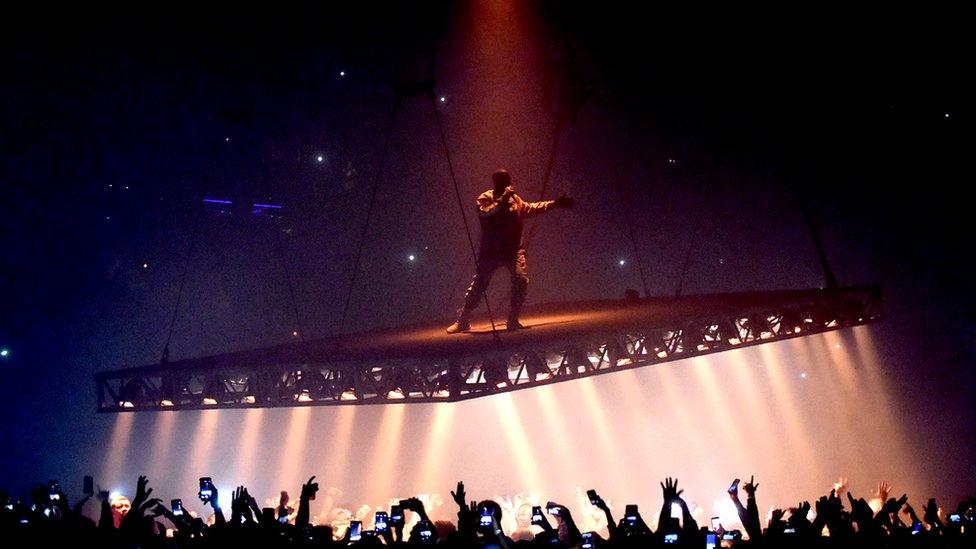Kanye West in São Paulo: The Controversy of Artistic Rebellion
Kanye West's planned concert in São Paulo has ignited heated debates about the balance between artistic freedom and social responsibility, amidst accusations of promoting dangerous ideologies.

Kanye West has always been a figure perched delicately on the precipice of brilliance and calamity. In the landscape of modern music, he is both a symbol of raw creativity and a magnet for controversy. His planned concert in São Paulo, Brasil, has become the latest battleground where his art collides with societal boundaries. This time, the stakes are dangerously high, with the São Paulo State Public Prosecutor’s Office ready to intervene if West crosses into the realm of promoting Nazism.
The Paradox of Kanye
Kanye West is a name that evokes both admiration and disbelief—a testament to his influence and irreverence. His craft, often hailed as genius, is intertwined with a penchant for pushing the limits of what society deems acceptable. Yet, there is a world of difference between provocation for the sake of art and the glorification of historical atrocities. West's track “Heil Hitler” stands accused of the latter, a move that places him at odds with not just the public, but legal forces in São Paulo.

The authorities' preemptive strike—ordering his arrest if he dares to amplify dangerous ideologies on stage—is a stark reminder that the world is still figuring out how to handle those who create art with unsettling undercurrents.
Art, Responsibility, and Rebellion
West's situation in Brasil underscores a larger cultural dialogue: the intersection of artistic freedom and social responsibility. The city’s rejection of providing him a public venue is more than just a logistical hiccup; it is a statement against the perceived threat that his message embodies. Is rebellion in art still viable in today's climate, or has the modern world sanitized it into oblivion?

Real rebellion, the kind that shakes the fabric of pop culture, feels increasingly rare. In an age where mainstream often equates to shallow spectacle, where is the art that truly challenges us? Kanye's narrative is a reminder of how perilous true rebellion can be when it dances on the edges of intolerance and insensitivity.
A Call for Genuine Art
The controversy surrounding Kanye's São Paulo concert is less about silencing a voice and more about the accountability that comes with a microphone that reaches millions. We are not witnessing the death of rebellion in music; rather, we're at a crossroads where artists must navigate how to wield their influence responsibly.

In this landscape, we hunger for voices that can provoke thought without perpetuating harm, for art that dares to be dangerous without being destructive. Kanye West's situation is a plea for music that doesn't cower in the shadow of controversy but stands firm in the face of it, challenging audiences without necessarily courting chaos.
In a world cluttered with sanitized pop, the rebellious spirit yearns for resurrection. We must hold a mirror up to today's cultural icons, questioning their roles in a culture that often trades provocations for profundity. The world still craves art that is raw, real, and unafraid to walk the tightrope between expression and empathy.




